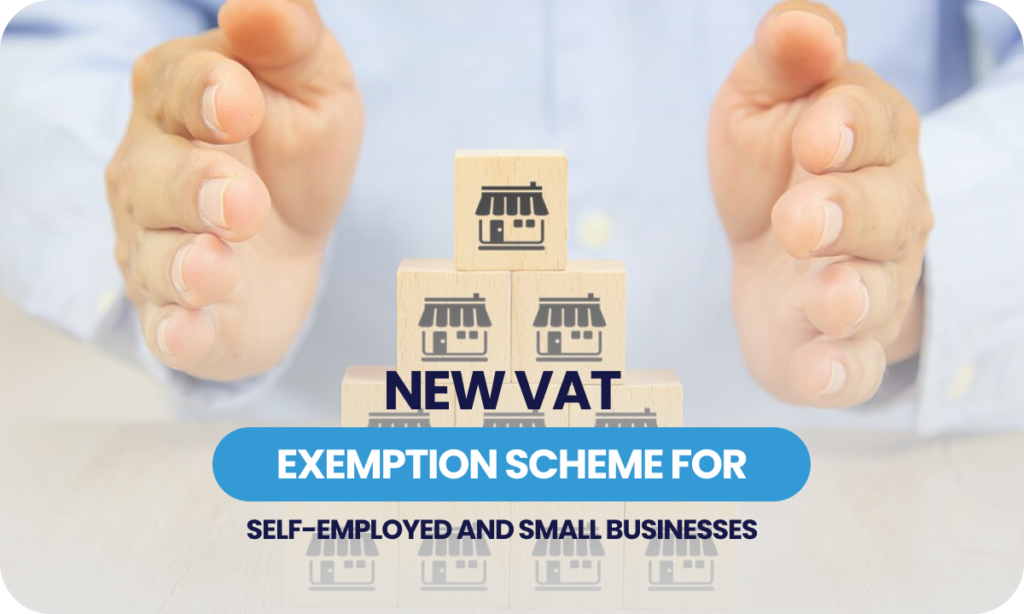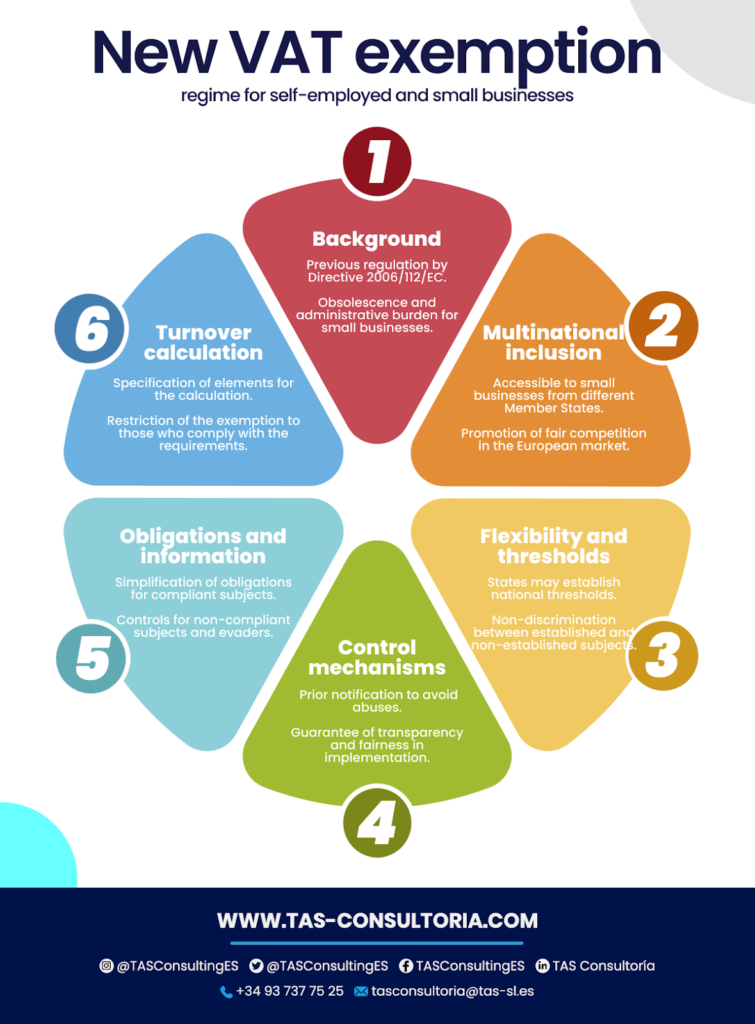
Learn about the new VAT exemption regime for self-employed and small businesses in Spain. What changes does this update bring and how will it impact your business? Stay to the end and keep up to date with the latest tax news – read on and stay informed!
What is the VAT exemption regime for self-employed and small businesses?
In a possible scenario for 2025, the self-employed and small entrepreneurs in Spain could experience significant relief. Specifically, in their tax burden with the implementation of the special franchise regime in the Value Added Tax (VAT).
This transformation of VAT for the self-employed has a clear objective: to exempt those with an annual turnover of less than €85,000 from the obligation to pay VAT on a quarterly basis. Thus simplifying their financial life. This measure is based on Directive (EU) 2020/285.
Let’s see in detail how this franchised VAT will affect self-employed and SMEs. And especially, how obsolete rules are being left behind to adapt to a more effective and efficient tax system.
You may also be interested in: Tax benefits for the self-employed in Spain
How does VAT exemption reduce the tax burden?
The special VAT exemption regime for the self-employed makes this option voluntary. Those who opt for this regime will be exempt from filing VAT returns and, therefore, from charging or deducting VAT.
This new feature means that invoices issued will no longer include the corresponding VAT rate (21%, 10%, or 4%).
Instead of quarterly procedures, you will now only declare at the beginning of the year and you will have to collect all income annually. This will allow the tax administration to verify whether the self-employed or SMEs meet the permitted turnover thresholds. This measure simplifies VAT for freelancers and small businesses.
Renewing the regime for the new fiscal era
The tax landscape for the self-employed and small businesses was previously regulated by Directive 2006/112/EC. This allowed Member States to apply special regimes. However, these rules were considered obsolete and did not reduce the administrative burden for small businesses.
In line with the European Commission’s VAT Action Plan, this change has been initiated to reduce the administrative burden. We share with you some key points about this new VAT taxation for the self-employed:
Establish thresholds and promote nondiscrimination
A significant novelty: the franchise scheme will not be limited only to businesses established in the Member State of VAT origin. This means that small businesses from different Member States can also benefit from the franchise. Thus promoting fairer and more unified competition in the European market.
In addition, Member States will have the flexibility to set their own national thresholds. Provided that they respect the ceiling set out in the Directive and do not discriminate between established and non-established taxable persons. This approach makes it possible to adapt the VAT exemption for self-employed persons to the particularities of each country.
Control Mechanisms
You must give prior notice if you choose to franchise in another State. Always avoiding its misuse and guaranteeing the access of the States to crucial information.
This process ensures effective control of its implementation and prevents any distortion of competition. These measures will ensure that the VAT exemption scheme for the self-employed is implemented in a transparent and fair manner.
Obligations and exchange of information
Tax administrations have the power to impose VAT registration and reporting requirements on self-employed taxpayers. Especially to non-established taxable persons who do not comply with certain obligations. Although the reporting obligations are simplified for compliant taxable persons, the requirement persists.
This strategy seeks to make taxation simpler for the compliant. While maintaining effective controls over those who try to evade their tax responsibilities.
Turnover calculation
To avoid the turnover calculation causing confusion, you will detail the essential elements to be considered. Taxable persons will not be eligible for the exemption if they exceeded the national threshold in the previous year. This ensures that only those who meet the requirements can benefit from this simplified self-employed VAT tax regime.
You can see a summary of these points below:

You may also be interested in: Learn about the new quotas for the self-employed 2023-2031
How will the transition to the new self-employed VAT tax system work?
When applying franchised VAT, small businesses will have access to a number of benefits that are essential for their optimal operation:
- They will have a VAT registration procedure designed specifically for them. With specific deadlines that will provide them with flexibility and ease in their tax procedures.
- In addition, these companies will have the advantage of simplified reporting obligations. This means that not only is the administrative burden in terms of declarations and documentation reduced. It also establishes more agile and accessible processes for reporting the necessary information.
One more benefit
The new VAT regime for the self-employed gives States the authorization for small businesses to choose between: the general VAT regime and a special regime tailored to them.
This flexibility seeks to adapt to the particularities and needs of each company. This comprehensive approach aims to facilitate the transition of small businesses to the new tax system.
You may also be interested in: What does it mean to be an entrepreneur with limited liability?
The implementation of significant changes in tax legislation can generate uncertainty and challenges. This special regime seeks to mitigate those effects by offering clear options adapted to the realities of these companies.
Now that you know the keys to the VAT exemption regime for self-employed in Spain, optimize your tax strategy! Looking to maximize your profits? Request a tax consultation and boost your finances to the maximum, contact us at tasconsultoria@tas-sl.es.




Your email address will not be published .
Required fields are marked with *